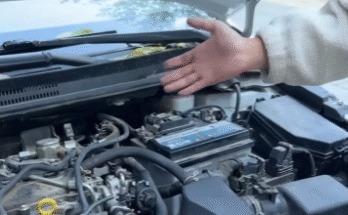
When we think of soap, our minds typically go straight to showers, squeaky clean hands, and kitchen sinks. But believe it or not, soap holds some fascinating and surprising secrets when it comes to cars. From cleaning agents to diagnostic tools and even temporary repair tricks, soap plays a variety of hidden roles in the automotive world. In this article, we’ll explore just what soap can do in cars, uncovering both its obvious and lesser-known applications.
1. Soap as a Cleaning Powerhouse for Vehicles
The most well-known use of soap in the automotive world is car washing. However, the kind of soap you use matters. Car-specific soaps are formulated to be gentle on paint, wax, and clear coats, unlike household detergents which can strip protective layers and damage the finish over time.
Secrets behind car soap:
- pH-balanced formulas: Automotive soaps are often pH-balanced to avoid damaging paint or drying out rubber seals.
- Lubrication: Car soaps contain lubricants that lift and trap dirt, reducing the risk of scratching surfaces during washing.
- Foaming agents: These help to create a thick lather that clings to dirt, making it easier to rinse away.
Using the right car soap helps maintain the longevity and appearance of your vehicle’s exterior, which many people overlook when they reach for dish soap or laundry detergent.
2. Soap to Detect Leaks
One of the clever, lesser-known secrets of soap in the car world is its use in diagnosing air or fluid leaks. Mechanics and DIY enthusiasts often mix a little liquid soap with water and spray it onto parts of a car suspected to be leaking—like the air intake, vacuum lines, tires, or coolant hoses.
How it works:
- When the soapy solution is applied to a surface, bubbles form wherever air or gas escapes. This is especially useful for:
- Finding a slow leak in a tire
- Identifying a faulty vacuum line
- Spotting a leaky radiator hose or heater core connection
It’s a quick, non-invasive, and affordable method to pinpoint problems without tearing down parts unnecessarily.

3. Soap for Slippery Installations
Another secret use of soap in car maintenance is during installations where tight rubber or plastic components need to slide into place. This could include:
- Installing new windshield wiper blades
- Replacing door seals
- Fitting radiator hoses
- Mounting rubber bushings or grommets
By applying a little bar soap or liquid soap, mechanics can make these installations easier without damaging delicate materials. Soap acts as a temporary lubricant, helping pieces slide smoothly—then it dries without leaving a sticky residue.
4. Cleaning Engine Compartments and Undercarriage
Engine bays and undercarriages accumulate grease, oil, road salt, and grime over time. Specialized degreasers exist, but gentle soapy water can be surprisingly effective, especially for regular cleaning. While it’s important to avoid getting water in sensitive areas, a soapy solution with a soft brush or microfiber cloth can remove layers of grime.
Why this matters:
- A clean engine bay makes it easier to detect future leaks.
- Reduces corrosion caused by salt and chemicals.
- Enhances the appearance and resale value of your vehicle.
Soap’s grease-cutting properties break down oily residues that can otherwise attract more dirt and hide mechanical issues.
5. Fog Prevention for Windows
One car hack involving soap that drivers may not know is using a dry bar of soap on the inside of car windows. By lightly rubbing the soap on the glass and then buffing it with a clean cloth, you create a thin layer that can help prevent fogging—especially in cold or humid weather.
This works because:
- Soap leaves a film that resists condensation from forming.
- It’s a quick and affordable alternative to commercial anti-fog sprays.
While not a long-term solution, this soap trick can be very handy during a road trip or in emergency situations.

6. Squeaky Solutions
If your car door hinges or dashboard are squeaking, soap may be a temporary fix. A little bar soap rubbed directly on the squeaky part can provide enough lubrication to reduce the noise—at least until you can apply the proper oil or grease.
Similarly, soap can also help quiet squeaky fan belts. While not a permanent solution and not recommended for modern serpentine belts, a little soap applied carefully can quiet a slipping or squealing belt in an older vehicle until professional repairs are made.
7. Cleaning Upholstery and Carpet
Most people clean their car seats and floors using special interior sprays or wipes. But in a pinch, a mild soap solution can be used to clean fabric seats, headliners, and floor mats.
Advantages:
- Gentle on fabric
- Effective against stains, especially food or coffee spills
- Can neutralize odors when combined with baking soda
For leather or vinyl surfaces, always use a cleaner formulated for those materials, as regular soap can strip natural oils.
8. Tire and Rim Detailing
Soap is not just for paint—it also plays a major role in detailing tires and rims. Heavy-duty soaps and foams are used to break down brake dust, road tar, and grime on wheels. Foaming soaps are great for clinging to vertical surfaces, giving cleaning agents more time to act.
Additionally, soap helps remove the “blooming” effect on tires—this is the brown discoloration that forms from oxidation and tire chemicals surfacing over time.

9. Soap in Car Manufacturing
In large-scale vehicle manufacturing, soap and soap-like substances are used in various stages:
- During assembly, to ease fitting parts together
- In paint shops, to prep surfaces for coating
- To clean parts before installation to ensure adhesion and quality control
While most of this happens behind the scenes, soap’s role in the automotive production process is crucial to ensuring precision and cleanliness.
10. Is Soap Harmful to Cars?
Despite all these benefits, not all soap is good for your vehicle. Using harsh household soaps like dishwashing liquid or laundry detergent can:
- Strip away wax and protective coatings
- Dry out rubber components
- Damage the clear coat over time
So, it’s essential to use soaps designed specifically for automotive use or follow professional recommendations when using home-based solutions.
Conclusion
From cleaning and maintenance to diagnosis and quick fixes, soap has many hidden roles in the world of automobiles. It’s not just a cleaning agent—it’s a versatile, reliable, and surprisingly scientific tool that helps keep vehicles running smoothly and looking their best. So next time you pick up a bar of soap or mix some suds in a bucket, remember: you’re not just cleaning your car—you might be uncovering one of its best-kept secrets.



